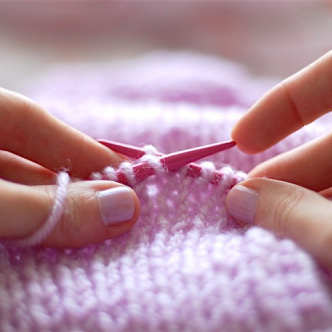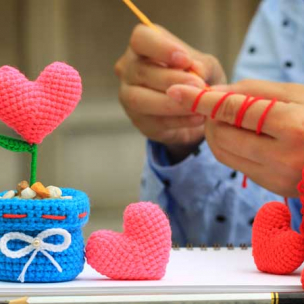Could Knitting Save The Nhs?
A lot of studies have shown knitting has fantastic health benefits, particularly for your mental health. Now, an organisation called Knit for Peace has conducted a widespread literature review looking at the benefits of the traditional craft, with the conclusion that knitting should be prescribed on the NHS.
The research, including past studies from Harvard Medical School’s Mind and Body Institute and the Mayo Clinic, has long shown that knitting can reduce depression and anxiety, distract from chronic pain, increase a sense of wellbeing, reducing loneliness and isolation, and increasing a sense of usefulness and inclusion into society.
With 1.2 million older people, according to Age UK and the Campaign to End Loneliness, are chronically lonely, with the new national initiatives having little effect on the figures. The latest reports suggest knitting could combat the problem, with more than half the Knit for Peace community saying being part of the knitting group or community makes them feel useful, resulting in higher self-esteem.
In Britain, the NHS spends over £2 billion each year on blood pressure treatments and £300 million on anti-depressants. This not including the rising Dementia diagnoses and cognitive impairment, which people that engaged in knitting regularly were shown to be 30% to 50% less likely to develop.
An aging population combined with a less immersed community has created uncertain conditions, particularly in mental health. The pressure on the NHS is constantly rising and alternatives to traditional prescriptions are being considered. This unfortunate situation requires a fresh alternative with knitting being suggested as one of such remedies.
The Knit for Peace survey has shown how knitting can help save the NHS. 70% of respondents noticed an increase in their overall health and well-being, with a further 86% feeling more relaxed after knitting. A decrease in stress helps blood pressure, as well as helping reduce chronic pain against diseases such as Arthritis.
The positive cognitive stimulation that knitting provides greatly enhances your memory and concentration, furtherly increasing your mental health. Even the most experienced knitter can make mistakes, and this complexity, along with the tangible gift at the end, creates a positive incentive to keep learning, stimulating the brain. This empowers the knitter, helping them to set themselves goals which are known for helping people who suffer from depression, raising self-esteem.
A decrease on prescriptive medicine and an increase in creative and social activities could save the NHS on a lot of its strained funds. The impact knitting could have on mental health is substantial and well-researched, providing ample reason for more flexible approaches to how we treat depression and anxiety.


